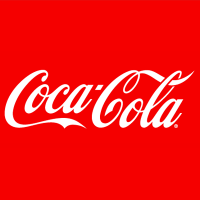
PepsiCo Inc
NASDAQ:PEP


| US |

|
Johnson & Johnson
NYSE:JNJ
|
Pharmaceuticals
|
| US |

|
Berkshire Hathaway Inc
NYSE:BRK.A
|
Financial Services
|
| US |

|
Bank of America Corp
NYSE:BAC
|
Banking
|
| US |

|
Mastercard Inc
NYSE:MA
|
Technology
|
| US |

|
UnitedHealth Group Inc
NYSE:UNH
|
Health Care
|
| US |

|
Exxon Mobil Corp
NYSE:XOM
|
Energy
|
| US |

|
Pfizer Inc
NYSE:PFE
|
Pharmaceuticals
|
| US |

|
Palantir Technologies Inc
NYSE:PLTR
|
Technology
|
| US |

|
Nike Inc
NYSE:NKE
|
Textiles, Apparel & Luxury Goods
|
| US |

|
Visa Inc
NYSE:V
|
Technology
|
| CN |

|
Alibaba Group Holding Ltd
NYSE:BABA
|
Retail
|
| US |

|
3M Co
NYSE:MMM
|
Industrial Conglomerates
|
| US |

|
JPMorgan Chase & Co
NYSE:JPM
|
Banking
|
| US |

|
Coca-Cola Co
NYSE:KO
|
Beverages
|
| US |

|
Walmart Inc
NYSE:WMT
|
Retail
|
| US |

|
Verizon Communications Inc
NYSE:VZ
|
Telecommunication
|
Utilize notes to systematically review your investment decisions. By reflecting on past outcomes, you can discern effective strategies and identify those that underperformed. This continuous feedback loop enables you to adapt and refine your approach, optimizing for future success.
Each note serves as a learning point, offering insights into your decision-making processes. Over time, you'll accumulate a personalized database of knowledge, enhancing your ability to make informed decisions quickly and effectively.
With a comprehensive record of your investment history at your fingertips, you can compare current opportunities against past experiences. This not only bolsters your confidence but also ensures that each decision is grounded in a well-documented rationale.
Do you really want to delete this note?
This action cannot be undone.

| 52 Week Range |
145.4
178.7664
|
| Price Target |
|
We'll email you a reminder when the closing price reaches USD.
Choose the stock you wish to monitor with a price alert.

|
Johnson & Johnson
NYSE:JNJ
|
US |

|
Berkshire Hathaway Inc
NYSE:BRK.A
|
US |

|
Bank of America Corp
NYSE:BAC
|
US |

|
Mastercard Inc
NYSE:MA
|
US |

|
UnitedHealth Group Inc
NYSE:UNH
|
US |

|
Exxon Mobil Corp
NYSE:XOM
|
US |

|
Pfizer Inc
NYSE:PFE
|
US |

|
Palantir Technologies Inc
NYSE:PLTR
|
US |

|
Nike Inc
NYSE:NKE
|
US |

|
Visa Inc
NYSE:V
|
US |

|
Alibaba Group Holding Ltd
NYSE:BABA
|
CN |

|
3M Co
NYSE:MMM
|
US |

|
JPMorgan Chase & Co
NYSE:JPM
|
US |

|
Coca-Cola Co
NYSE:KO
|
US |

|
Walmart Inc
NYSE:WMT
|
US |

|
Verizon Communications Inc
NYSE:VZ
|
US |
This alert will be permanently deleted.
 PepsiCo Inc
PepsiCo Inc
 PepsiCo Inc
Retained Earnings
PepsiCo Inc
Retained Earnings
PepsiCo Inc
Retained Earnings Peer Comparison
Competitors Analysis
Latest Figures & CAGR of Competitors

| Company | Retained Earnings | CAGR 3Y | CAGR 5Y | CAGR 10Y | ||
|---|---|---|---|---|---|---|

|
PepsiCo Inc
NASDAQ:PEP
|
Retained Earnings
$72.6B
|
CAGR 3-Years
4%
|
CAGR 5-Years
3%
|
CAGR 10-Years
4%
|
|

|
Coca-Cola Co
NYSE:KO
|
Retained Earnings
$75.9B
|
CAGR 3-Years
4%
|
CAGR 5-Years
3%
|
CAGR 10-Years
2%
|
|

|
Primo Water Corp
TSX:PRMW
|
Retained Earnings
$194.5m
|
CAGR 3-Years
87%
|
CAGR 5-Years
-6%
|
CAGR 10-Years
3%
|
|

|
Monster Beverage Corp
NASDAQ:MNST
|
Retained Earnings
$7.2B
|
CAGR 3-Years
-1%
|
CAGR 5-Years
9%
|
CAGR 10-Years
13%
|
|

|
Coca-Cola Consolidated Inc
NASDAQ:COKE
|
Retained Earnings
$1.2B
|
CAGR 3-Years
20%
|
CAGR 5-Years
25%
|
CAGR 10-Years
19%
|
|

|
Keurig Dr Pepper Inc
NASDAQ:KDP
|
Retained Earnings
$5.2B
|
CAGR 3-Years
26%
|
CAGR 5-Years
30%
|
CAGR 10-Years
12%
|
|
PepsiCo Inc
Glance View
PepsiCo Inc., with its roots tracing back to the late 19th century when Caleb Bradham invented Pepsi-Cola, has evolved into a multinational powerhouse known for its diverse range of beverages and snacks. This American giant operates through several well-defined segments, primarily Beverages, Frito-Lay North America, Quaker Foods North America, Latin America, Europe, Africa, the Middle East, and Asia Pacific divisions. Each of these segments plays a crucial role in shaping the company's global footprint. The beverage division, housing iconic brands like Pepsi, Mountain Dew, and Tropicana, remains a cornerstone of their business model. Meanwhile, the famed Frito-Lay snacks, with cultural staples such as Lay's, Doritos, and Cheetos, contribute significantly to the company's revenue streams, capturing markets worldwide with their wide appeal. Diving deeper into its operations, PepsiCo's strategy isn't merely about selling products—it's about commanding a vast distribution network and innovating in response to shifting consumer demands. The company invests heavily in marketing and research and development, ensuring its portfolio resonates with the evolving tastes and preferences of consumers, including a rising interest in healthier options. Simultaneously, PepsiCo's direct store delivery model, alongside partnerships with bottlers and distributors, optimizes logistics and market penetration. From leveraging advanced analytics for precision marketing to pursuing sustainability initiatives in sourcing and packaging, PepsiCo's methods are as dynamic as its products. This adaptability ensures it can effectively monetize its diverse product offerings across the globe, reinforcing its position as a significant player in the global food and beverage industry.

See Also
What is PepsiCo Inc's Retained Earnings?
Retained Earnings
72.6B
USD
Based on the financial report for Sep 7, 2024, PepsiCo Inc's Retained Earnings amounts to 72.6B USD.
What is PepsiCo Inc's Retained Earnings growth rate?
Retained Earnings CAGR 10Y
4%
Over the last year, the Retained Earnings growth was 3%. The average annual Retained Earnings growth rates for PepsiCo Inc have been 4% over the past three years , 3% over the past five years , and 4% over the past ten years .






























 You don't have any saved screeners yet
You don't have any saved screeners yet